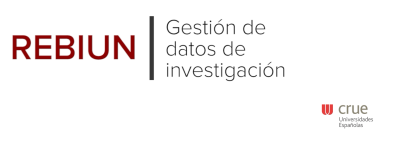Political power and vaccine neocolonialism: the exercise of word and human action
DOI:
https://doi.org/10.62407/rces.v2i2.57Keywords:
Human Act, COVID-19, Neocolonialism, Speech, PowerAbstract
This paper analyzes the situation generated by the unequal distribution of vaccines that -internationally has occurred within the framework of the epidemic generated by COVID-19. For this, the concepts of “act” and “word” derived from the theoretical-political theses of Hannah Arendt (1993) are used, with which it was sought to demonstrate the situation of neocolonialism of vaccines derived from this situation, from philosophical deconstruction of to raise the urgent consequence of neocolonialism of health, which allowed us to infer how Human Rights are not the central axis of the discourses or of the national and state praxis of the government systems of Countries with more stable and strong economies, since the decisions and behaviors reflect the interests of the main actors of the National States that have economic support for the large-scale purchase of vaccines against COVID-19. Which in turn are the protagonists of a sociopolitical phenomenon that can be categorized as global health neocolonialism, which is presented as a phenomenon of neocolonialism that begins with the confidentiality agreements signed between the States of the countries and the pharmaceutical corporations, inside or outside COVAX in the year 2020. Concluding that the massive purchase of vaccines was subjected to an exclusivity character to acquire the lots, where some discriminatory or non-inclusion factors are revealed, stating that COVAX did not comply with the purpose for what was initially created.
Downloads
References
Arendt, H. (1993). La Condición Humana. Barcelona: Paidós.
Arendt, H. (2002). La Vida del Espíritu. Barcelona: Paidós.
Avalos, F. (2022). Explicando la Pandemia de Covid-19. Sevilla: Universo de Letras.
BBC. (2021). Vacuna contra el coronavirus: la OMS advierte que el mundo está al borde de un "fracaso moral catastrófico". BBC News Mundo, 1-3.
Benavente, J. (1907). Los intereses creados. Los intereses creados. Teatro Lara, Madrid, España.
Cazzato, S. (1999). La materialidad e la ética discursiva según E Dussel. Utopía y Praxis latinoamericana, 79-84.
Clunes, C. R. (2020). Pandemia Covid-19 en Chile. Questión, 1-7.
Comesaña, S. G., & Cure de Montiel, M. (2006). El pensamiento como actividad según Hannah Arendt. Utopía y Praxis Latinoamericana, 11-30.
COVAX. (2020). Covid-19 Vaccines Global Access. Alianza Mundial para las Vacunas y la Inmunización (págs. 1-3). Paris: GAVI-CEPI-OMS.
Euronews. (2 de Diciemnbre de 2020). Euronews.com. https://es.euronews.com/2020/12/02/reino-unido-se-convierte-en-el-primer-pais-en-autorizar-la-vacuna-de-la-covid-19-de-pfizer
GAVI. (2 de Junio de 2021). The Gavi COVAX Advance Market Commitment Summit . págs. 1-2.
Harrison, C. (4 de Febrero de 2022). ¿Qué es COVAX y qué significa para América Latina? As-coa.org, págs. 1-4.
Kaffure, ., Pellegrini, P., & Navas, . (2021). La pandemia de COVID-19 y un nuevo orden mundial. Bogotá: Ediciones Universidad Cooperativa de Colombia.
López, G. J. (2021). Coronavirus. Anatomía de Una Pandemia. Mexico D.F.: Almuzara. López-López, W., Velandia-Morales, A., & Alzate, M. (2020). Derechos humanos en el marco del COVID-19, una mirada desde la psicología. Reflexiones hacia la postpandemia. En En Psicología en contextos de COVID-19, desafíos poscuarentena en Colombia (págs. 251-260). Bogotá: Asociación Colombiana de Facultades de Psicología.
Martín-Corral, D. (2022). Viviendo en una sociedad enferma: Una historia sobre naturaleza, comportamiento humano, salud y espiritualidad. Madrid: Libros.com.
Mercola, J., & Cummins, R. (2021). Toda la verdad sobre el COVID-19: La historia detrás del gran reinicio. Montpelier: Florida Health Publishing.
Moscovici, S. (1976). La Psychanalyse : son image et publique. París: Presses Universitaires de France.
OMS. (23 de Mayo de 2017). Organización Mundial de la Salud. https://www.who.int/es/news-room/detail/23-05-2017-world-health-assembly-elects-dr-tedros-adhanom-ghebreyesus-as-new-who-director-general
OMS. (12 de Abril de 2022). Organización Mundial de la Salud. https://www.who.int/es/initiatives/act-accelerator/covax
OMS. (11 de Mayo de 2022). World Health Organization. Obtenido de https://www.who.int/es/initiatives/act-accelerator/covax
ONU. (18 de Agosto de 2020). La OMS advierte sobre los riesgos del nacionalismo de las vacunas contra el COVID-19. Noticias ONU, págs. 1-1.
ONU. (18 de Agosto de 2020). Organización de Naciones Unidas. https://news.un.org/es/story/2020/08/1479092
OWD. (11 de Julio de 2021). Our World in Data. págs. 1-3.
Pacheco, M. G. (2021). La pandemia de covid-19 y el balance de poder mundial. Política y Cultura, 33-62.
Sabucedo, J.-M., Alzate, M., & Domenico, H. (2020). COVID-19 and the metaphor of war.
International Journal of Social Psychology, 618-6226. doi: https://doi.org/10.1080/021 34748.2020.1783840
Schutz, A. (1984). Appraisals and Developments . Boston: Kluwer Academic Publishers.
Toro, G. S., & Pérez, C. C. (2021). Populismo político en tiempos de COVID. Análisis de la estrategia de comunicación de Donald Trump y Boris Johnson en Twitter. Revista de Comunicación de la SEECI, 1-24.
UNAM. (2021). Derecho y política ante la pandemia: reacciones y transformaciones. Madrid: Universidad Nacional Autónoma de Madrid.
Vargas, C. (2019). La construcción del sentido común por parte del Gobierno Nacional de Colombia favorecedor del proceso de paz con las Farc-ep (2012-2016). Bogotá: Universidad Catolica de Colombia.
Vargas, C., & Cazzato, S. (2022). The fragility of power through the analytical approach of political personalism and the disdain for common sense (Case: Mexico). Revista Cuestiones Politicas, 745-759.
Velasco, G. A. (2021). Los desafíos de la pandemia al paradigma liberal tecno-científico neocolonialista y las sabidurías indígenas. Encuentros. Revista De Ciencias Humanas, Teoría Social Y Pensamiento Crítico, 107–120.
Zea, L. (1971). Latinoamerica: emancipacion y neocolonialismo: Ensayos. Madrid: Editorial Tiempo Nuevo.
Downloads
Published
How to Cite
Issue
Section
License
Copyright (c) 2023 Revista Científica de Estudios Sociales

This work is licensed under a Creative Commons Attribution-NonCommercial-ShareAlike 4.0 International License.



















